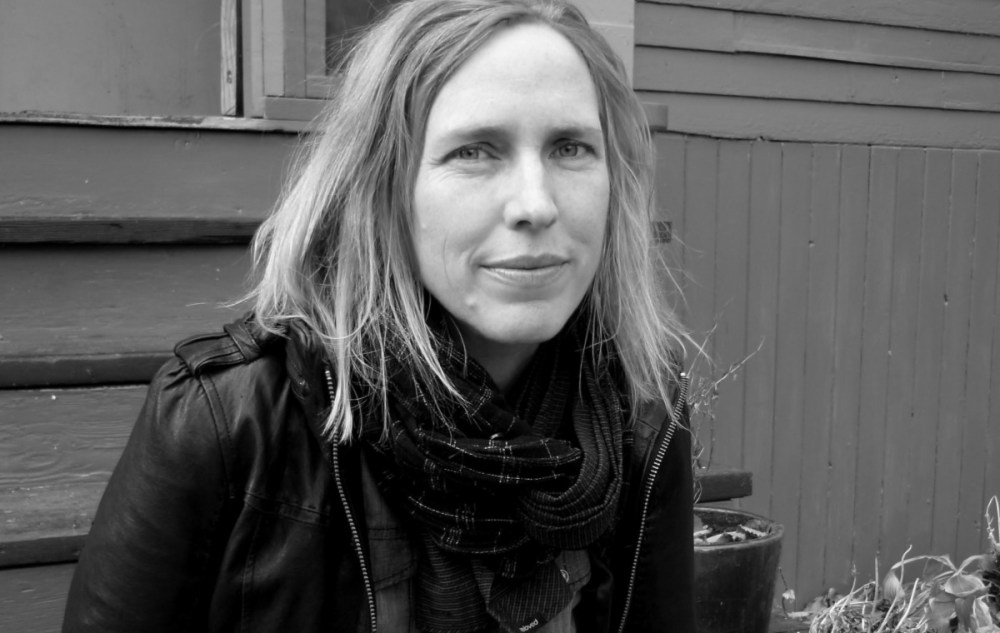Toews returns with novel set in Bolivia
Advertisement
Hey there, time traveller!
This article was published 27/08/2018 (2606 days ago), so information in it may no longer be current.
Award-winning novelist Miriam Toews’ latest book plunges readers into the imagined aftermath of real events that rocked a Bolivian Mennonite community to its core, but the Steinbach-bred writer says she took pains to convey the courage and faith displayed by the survivors.
Women Talking was published last Tuesday by Knopf Canada.
The 216-page book, her eighth, takes as its backdrop a sexual abuse scandal in the Manitoba Colony, a remote enclave of 2,000 located northeast of Santa Cruz, Bolivia.

As Toews explains in the book’s prologue, between 2005 and 2009, more than 130 women and girls were raped by colony men who drugged them unconscious using animal anesthetic.
Though the victims were initially called liars and adulterers, and the crimes attributed to demons or ghosts, in 2011 a Bolivian court convicted eight perpetrators and sentenced them to prison. However, similar abuse in the colony was reported as recently as 2013.
Toews’ first-person narrative deposits readers into a barn loft on the fictional Molotschna Colony, where three generations of women from two families—Loewens and Friesens—spend two days debating whether to leave the colony, stay and fight their abusers, or do nothing.
Each choice holds hard and lasting implications for the women’s marriages, children, and friendships.
“There’s no perfect decision that they’re attempting to make, no perfect choice, and all of them have high stakes,” Toews told The Carillon.
“It’s not a critique of the Mennonite faith, or of the Mennonite people, but of the culture of control that can so easily arise from these types of communities,” she explained.
It’s a statement that could also apply to her writing career as a whole, which some believe dwells too often on the negative aspects of tight-knit communities.
“There are always those who would prefer that this kind of stuff remains hidden, covered, and that I would remain silent,” Toews said. “But that’s not going to do any good. It’s not going to solve the problems that we have.”
Healing can’t thrive in a culture defined by secrecy, she reasoned.
“All of the various factions of the Mennonite church, we can come together and we can talk about these things, we can talk about the problems within our community.”
While Toews said the colony attacks “horrified” her, she also recognized them as an extreme manifestation of the particular social problems that arise in closed communities, a topic she’s processed repeatedly throughout her career.
“My writing is a reflection of what’s is going on in the world, and particularly in my Mennonite community, which I care about deeply,” she said. “We can see, from a sociological point of view, how these crimes might have occurred, and we can make those changes.”
To enter a community still largely sealed off from the world, and imagine the limited worldview of the Bolivian women (who are illiterate and have never seen a map), Toews said she read news reports and drew on her knowledge of patriarchy and fundamentalist interpretations of the Bible.
In a book that consists almost entirely of dialogue, Toews said it was a “huge challenge” to keep each woman’s voice distinct and authentic.
“To hear these women talking, that’s what brings them to life.”
While the eight women frequently disagree about the best response to their plight, they don’t hesitate to join hands as they sing the hymns, like “For the Beauty of the Earth,” that close each meeting.
Toews said she inserted the hymns to show the “hopeful and beautiful” aspects of their community, and as a nod her upbringing.
“That’s what I miss so much from my own childhood in Steinbach, was the beauty of the singing.”
The 54-year-old, whose second grandchild was born less than a month ago, said she still feels “conflicted” when visiting her hometown.
“I think about it so often. I live in Steinbach in my imagination.”
She described it as an “incredibly nurturing” place to grow up.
“There’s a sadness there too, because it’s probably not a community that I could live in again, and yet my life there was, in many ways, a joyous thing.”
